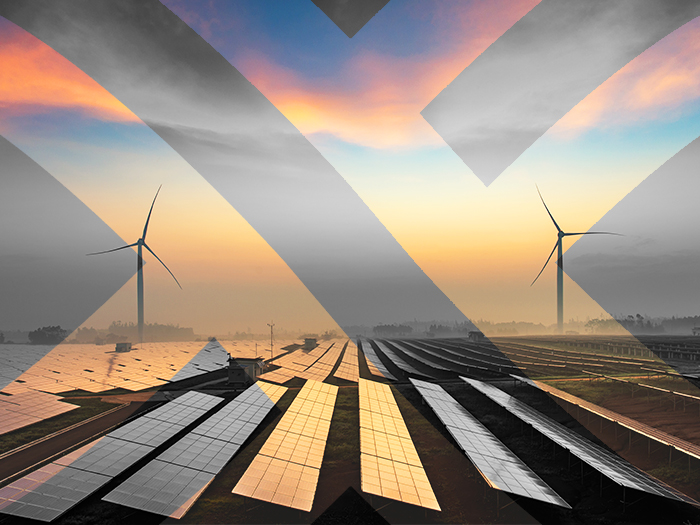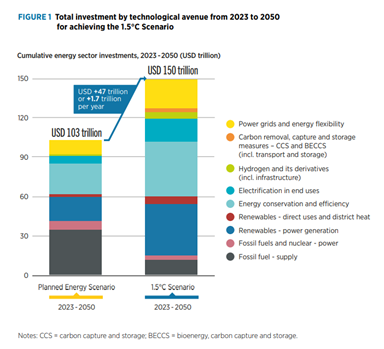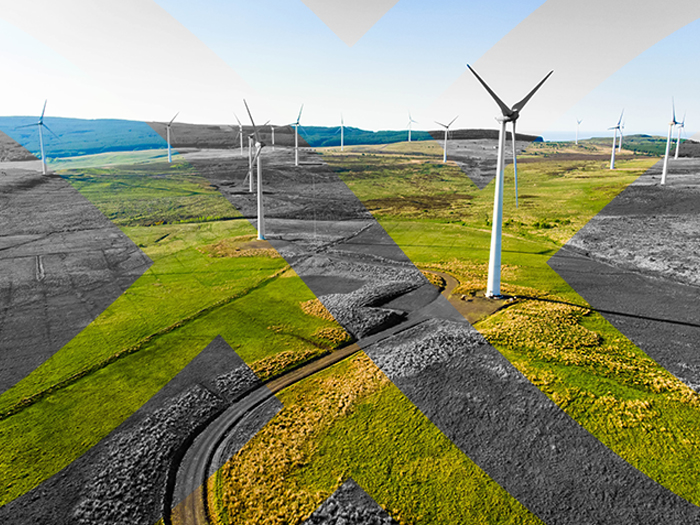Insights
better business decisions
Posted 1 year ago | 2 minute read

Global energy transition needs $35T by 2030
The global energy transition needs a fundamental course correction to sustain the 1.5°C climate target, as it is off-track due to the impact of global crises, according to International Renewable Energy Agency (IRENA).
In its latest World Energy Transitions Outlook 2023 Preview, published on 28 March, the agency warns that to achieve climate targets, $35T investment will be necessary by 2030.
According to the report, the aftermath of the COVID-19 pandemic and the effects of the Ukraine crisis have compounded the challenges facing the transition. Achieving the necessary course correction in the energy transition will require bold, transformative measures that reflect the urgency of the present situation including action on the three priority pillars of the energy transition: physical infrastructure, policy and regulatory enablers, and a well-skilled workforce.
The report emphasizes the need for investment and comprehensive policies to increase renewables and the structural changes required for a primarily renewables-based energy transition. Existing renewable power targets would increase total renewable power capacity to 5.4TW by 2030, representing less than half of the 11.2TW needed for a 1.5°C pathway.
Some progress is being made, notably in the power sector, with renewables representing 83% of capacity additions and reaching 40% of installed power generation globally in 2022. A total of 295GW of renewables was added worldwide in 2022, the largest-ever annual increase in renewable energy capacity. The strong business case for renewables, coupled with supportive enabling policies, has sustained an upward trend in their share of the global energy mix. However, overall deployment remains centred on a limited number of counties and regions, with China, the European Union and the United States accounting for 75% of capacity additions.
It said investment and comprehensive policies must be implemented to drive the shift towards a predominantly renewables-based energy system. It also calls for a systematic change in the volume and type of investments, prioritising transition technologies such as efficiency, electrification, grid expansion, and flexibility.

Source: IRENA







